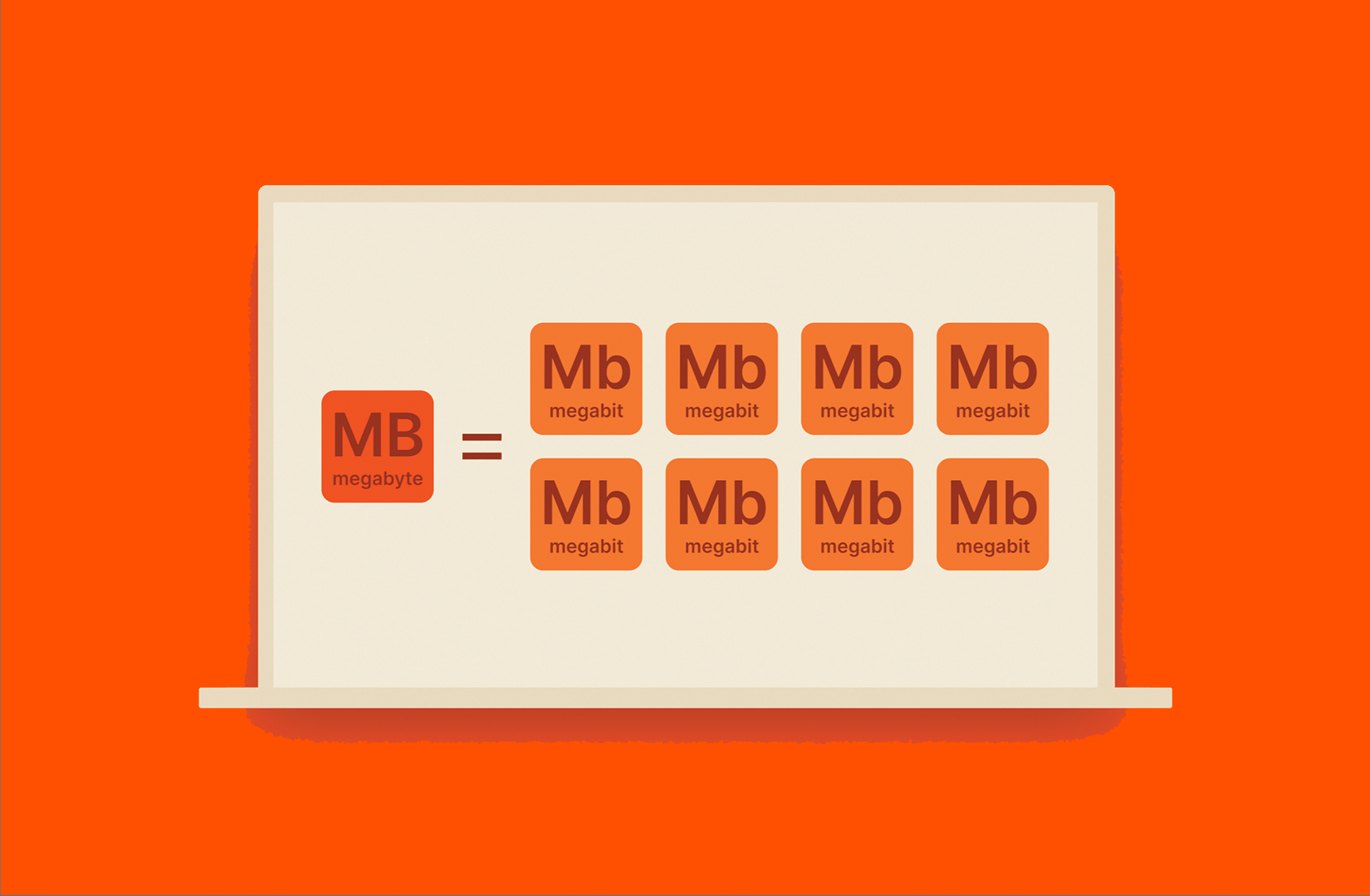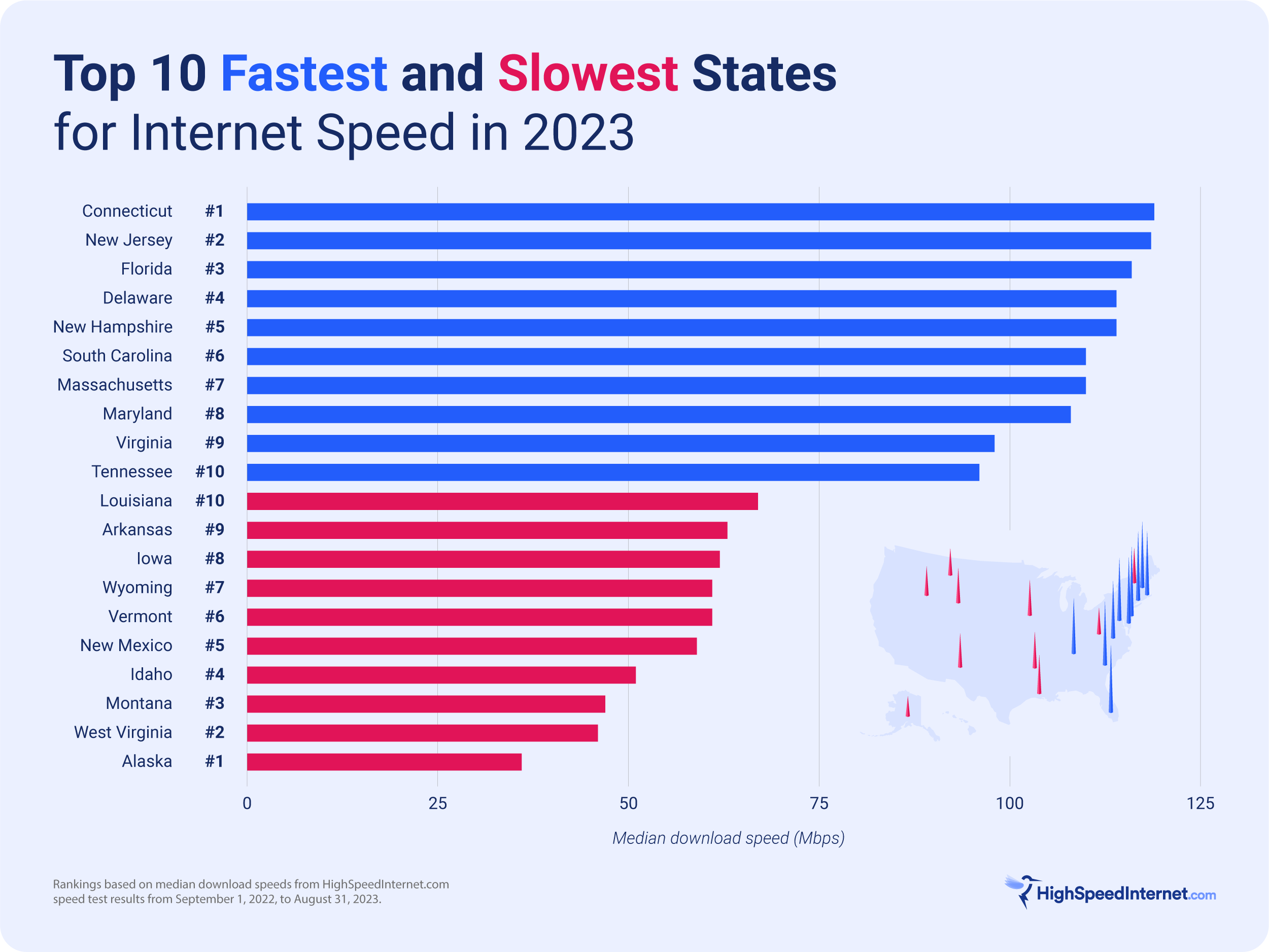Discovering the Relationship In Between Megabits Per Second and Download Speeds
Discovering the Relationship In Between Megabits Per Second and Download Speeds
Blog Article
Just How Megabits Per Second Effect Your Online Activities
The idea of megabits per second (Mbps) plays a crucial role in forming our online experiences. Higher Mbps can enhance performance and reduce disruptions, while inadequate rates may cultivate irritation and inefficiency.
Recognizing Megabits Per Second
When thinking about web rate, it's necessary to understand the principle of megabits per second (Mbps), which offers as a basic dimension for data transfer rates. This statistics measures exactly how much data can be transmitted over a web connection in one second, supplying a clear understanding of efficiency abilities - Megabits Per Second. For context, one megabit amounts to one million bits, and Mbps is typically utilized to reveal data transfer for different on the internet tasks
A greater Mbps shows a faster internet connection, enabling users to do tasks such as downloading data, surfing web sites, and taking part in online gaming much more effectively. For instance, common surfing needs around 1-5 Mbps, while streaming high-def video clip might demand 5-25 Mbps. Comprehending these needs is essential for determining the suitable net rate needed for details tasks.
In addition, the number of gadgets linked to a network can affect general efficiency. Several customers streaming, pc gaming, or downloading and install concurrently can strain available data transfer, leading to slower rates - Megabits Per Second. Reviewing personal online practices and demands is vital in selecting an internet plan that straightens with one's requirements, ensuring a seamless digital experience
Streaming and Buffering Issues
Streaming high-definition material has become a staple of modern-day on the internet home entertainment, yet it is usually gone along with by discouraging buffering concerns. These disturbances can considerably interfere with the checking out experience, bring about frustration and potential loss of target market involvement. Buffering happens when the information transferred from the streaming solution is not gotten promptly sufficient to preserve a smooth playback, frequently due to insufficient internet rate measured in megabits per second (Mbps)

Moreover, real-time streaming can be influenced by network congestion, which happens when several tools share the very same transmission capacity. Subsequently, optimizing link speed and guaranteeing appropriate Mbps is crucial for a seamless streaming experience. As streaming services continue to advance, recognizing the effect of Mbps on buffering issues stays critical for customers seeking uninterrupted amusement.
Online Gaming Efficiency
The impact of internet speed on online activities expands beyond streaming, significantly affecting on the internet gaming efficiency. In affordable pc gaming, low latency and high data transfer are crucial for a smooth experience. A rapid link decreases lag, allowing gamers to respond swiftly to in-game occasions, which can be the difference in between success and defeat.
Bandwidth, determined in megabits per second (Mbps), plays an important function in supporting several devices and gaming platforms all at once. Not enough bandwidth can lead to went down connections or minimized game quality, negatively impacting gameplay. For example, online multiplayer games need significant data go to these guys transfer, specifically during peak pc gaming hours when various gamers are online.
Hectic first-person shooters demand higher rates to maintain responsiveness, while turn-based approach video games may operate moderately well on reduced speeds. As on-line pc gaming continues to develop, with enhancing visual integrity and more intricate multiplayer environments, the need for higher Mbps will just increase.
Video Conferencing Quality
In today's digital landscape, video conferencing high quality is greatly affected by web rate, especially in regards to transmission capacity and latency. Premium video clip calls require enough transmission capacity to transmit sound and video data perfectly. Normally, a minimum of 1.5 Mbps upload and download speeds is recommended for common interpretation video, while high-def video clip conferencing normally demands at the very least 3 Mbps.
Latency, or the hold-up in between sending and receiving data, additionally plays a vital role in the individual experience. Low latency guarantees that conversations flow naturally without awkward pauses or disturbances. Ideally, latency should be listed below 150 milliseconds for effective communication. Higher latency can lead to resemble, lag, and disjointed interactions, which can prevent collaboration and interaction throughout conferences.
Moreover, several participants in a video conference can strain available data transfer, demanding even greater speeds. Network blockage, typically brought on by synchronised tasks like streaming or downloading, can additionally degrade video high quality. Therefore, for companies depending on video conferencing for remote cooperation, recognizing the relationship in between megabits per click for more info general and second communication high quality is essential for preserving efficiency and boosting digital communications.
Choosing the Right Web Plan
Selecting a suitable net plan is essential for making sure ideal performance in numerous online activities, particularly in settings that require high transmission capacity, such as video conferencing and online pc gaming. Megabits Per Second. When considering an internet strategy, it is vital to review both the rate and information allocation to match your particular use requirements
For houses with numerous customers engaging in simultaneous activities, a strategy supplying higher megabits per second (Mbps) is advised. Typically, a minimum of 25 Mbps is appropriate for common streaming and browsing, while strategies surpassing 100 Mbps are preferable for more extensive tasks. Additionally, think about the nature of your online tasks; video clip conferencing calls for at the very least 1.5 Mbps post rate, while on-line pc gaming may need a reduced latency but regular connection.
Unlimited information strategies can protect against throttling and interruptions, particularly if hefty use is expected. By attentively picking an internet strategy customized to your needs, you can boost your online experience, guaranteeing smooth, continuous accessibility to your recommended tasks.
Conclusion
In final thought, the relevance of megabits per second (Mbps) in shaping on the internet activities can not be overstated. An extensive understanding of individual or house Mbps needs is crucial for selecting a proper net strategy that appropriately sustains diverse online activities Continued and individual demands.

Commonly, a minimum of 25 Mbps is suitable for typical streaming and surfing, while strategies exceeding 100 Mbps are preferable for even more intensive jobs. Additionally, think about the nature of your online activities; video conferencing requires at least 1.5 Mbps submit rate, while online video gaming might require a lower latency but consistent connection.
Report this page